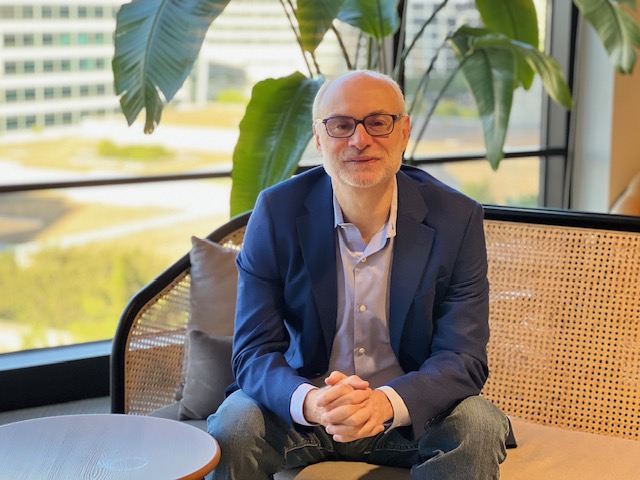Around the year 2000, I submitted my manuscript, Who Are You in the Torah? Personality Type and a Fulfilled Jewish Life, to the editor of one of the most prolific Jewish publishing houses in the United States. He briefly skimmed through it, smiled, and regretfully said, “This will not sell. Jews care about how to do things. They don’t buy books on the inner life.” Reaching under his desk, he pulled out a small booklet and showed it to me: A Catalogue on Spirituality. Then, placing a hand on my shoulder, he whispered, “Your book is for these folks.”
I never published it. I felt like a stranger among my people. Yet today, the landscape has shifted. My most requested lectures in the congregational scholar circuit focus on positive psychology, optimism, and happiness—pathways to a better life. However, once my lectures and workshops are over, I am left with an unsettling feeling that as soon as I depart, congregations revert to their default concerns—antisemitism, textual analysis, and “how to” Judaism. While these issues are vital, I fear that Judaism is missing the profound spiritual revolution unfolding in America: the pursuit of wellbeing.
During a panel discussion on happiness with the Dalai Lama and other religious leaders, the late Rabbi Jonathan Sacks took the podium, surprising the audience by declaring, “Judaism does not seek the happy life but a sacred life.” The pursuit of a “sacred life” sounds impressive and laudable. It is the kind of Jewish exclusivism that makes us feel so good. But we risk losing relevance if we opt out of the happy life in possibly the most anxious and depressed humanity ever.
The Rise of Spirituality
It is precisely at a time of this longing for happiness and wellbeing that spirituality enters center stage. For years, spirituality has been dismissed as vague and ethereal, but over the last 20 years, it has matured into a movement with defined language and principles. Some of its most influential figures, attracting multitudes to their podcasts, books, and retreats, include James Webmore, Joe Dispenza, Gabrielle Bernstein, Laurie Santos, and Lisa Miller. Their voices emerge from the business, positive psychology, neuroscience, and coaching universes. They speak the language of “manifestation,” “visualization,” “abundance,” and “vibrations.” These terms have rapidly captured the conversation about purpose and the flourishing life. Several key principles unify their message:
- The journey toward wellbeing begins with inner transformation.
- The Self and the Universe are interconnected energies we can access without limitation.
- The potential for growth and fulfillment is boundless.
Most centrally, in a world ravaged by anxiety, depression, and uncertainty, spirituality meets people where they are, asking first, “How do you feel?” before prescribing “What you should do.”
Judaism’s Blind Spot
Judaism, by contrast, often prioritizes “what you should do” while neglecting “how you feel.” We thrive in communal engagement but falter in addressing personal transformation. Yet, today’s suffering stems from an internal crisis. People feel awful and seek guiding principles to infuse their lives with meaning and purpose. A shift inside must precede action. Spirituality shines in articulating wisdom principles for inner transformation. Judaism also possesses them, but for most Jews in North America today, they remain buried beneath layer after layer of interpretations, convoluted sources, and behavioral mandates. For instance, more of us need to talk about Shabbat as practicing the principle of “being” over “having.” Most Jews don’t know such wisdom concealed beneath Shabbat’s thousands of rules. Our difficulty translating rituals and norms into meaning is a liability in a world searching for purpose. Fortunately, more and more congregations are including wellbeing committees in their structures. Still, we must redouble our efforts to transform religion into a force for transformation and spiritual growth.
The Principles of Spirituality and Judaism
What frustrates me the most is that many of the principles of the spiritual movement are compatible with Judaism. Let me share two fundamental principles of the spiritual movement as examples of wisdom principles that resonate today.
Principle of Abundance: Since childhood, we are conditioned to believe that scarcity determines value – the rarer something is, the more precious it becomes. If diamonds were to be found like the sand on a beach, they would be worthless. In this world of scarcity, we must always compete with each other. One person’s gain must, by necessity, be another’s loss. But spirituality offers an alternative: a reality where the most valuable things – love, kindness, and gratitude — exist in infinite supply. The more we give, the more we receive. The more we love, the more we are loved. In the world of the spirit, there is never scarcity. As the Talmud teaches, “When one lights a candle from another candle, the flame of the first candle does not diminish” (Shabbat 122a). The principle of abundance induces a profound internal positive shift. It helps us transition from our current state of fear and lack to one of optimism.
Principle of Attraction: Imagine waking up energized, confident, and hopeful. Your day unfolds positively, opportunities arise, and interactions flow smoothly. Now, imagine a day when you wake up feeling bad. You are in a terrible mood. You see everything negatively. I assure you that you will have an awful day. Positive emotions, thoughts, and actions attract positive opportunities and relationships in life. Positive expectations lead to positive results. The book of Mishlei (Proverbs) teaches: “As a person thinks, so a person is” (23:7). We are magnets for the positive or negative. Our internal state opens realities for us. We are not just recipients of what happens but agents of our journey. We manifest in the world what we conceive internally.
Reclaiming Our Wisdom
These are just two examples of the many wisdom principles at the heart of today’s spiritual awakening. They resonate because they prioritize inner transformation and cultivate optimism, positivity, and wellbeing. They care about the individual’s internal state. If Jewish leaders want to engage spiritual seekers, we must work harder to distill wisdom principles from our tradition’s sources and behavioral norms. We must emphasize internal growth alongside external action. The directive “Do it first and then understand” (“na’aseh v’nishma” from Exodus 24:7) does not operate well in a world where the Self is fractured. We believe that given the fragility of the Self today, people need empathy and compassion before directives. Healing must precede action.
Recently, I mentioned my long-abandoned book on personality and Judaism at Clal’s Alumni Innovation Summit. The response from fellow rabbis was uplifting: “You must publish it. This is needed now more than ever.” Perhaps, after years of exile, the time has come to move my work from the spirituality catalog to the Jewish bookshelf. It feels like coming home.

Rabbi Alfredo Borodowski, PhD, MSW, is an expert on the impact of positive psychology. With over 30 years of spiritual leadership and coaching experience, Alfredo has mentored and advised executives, as well as more than 50 nonprofit organizations and foundations. He holds certifications in MBTI personality type inventory and positive psychology from the VIA Institute.

